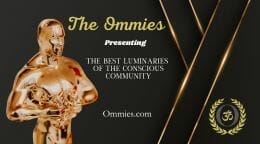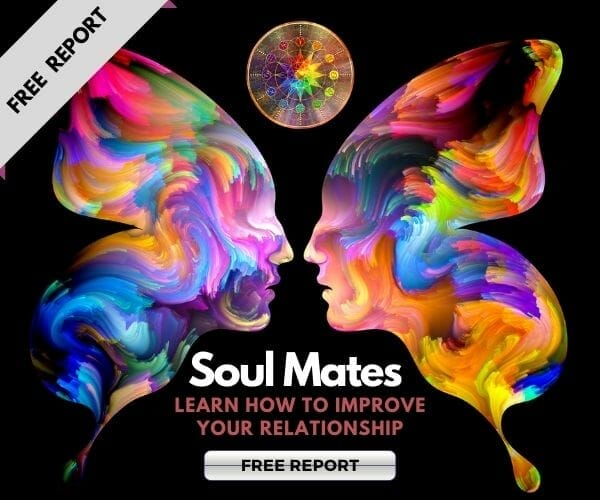Pop psychology can cause harm when shared by unqualified influencers. Learn the risks and value of seeking professional mental health advice.
The Many Dangers of Pop Psychology
There’s an old expression, “A little knowledge is dangerous.” It means that a partial or inadequate understanding of a concept can create many problems. That is especially true in psychology.
Pop psychology is a mixed blessing. On the one hand, it brings an awareness of psychological issues into the mainstream. On the other hand, it often presents these concepts incompletely or distortedly.
The most important message of the major medical and psychological associations is to “do no harm.” When pop psychology misrepresents the workings of the human psyche, there is the potential for real harm.
Pop psychology has hidden dangers.
Laypeople (often influencers) obtain their information about psychology from a variety of sources, many of which need to be more reputable and accurate. They form opinions based on their own personal experience or that of a friend. They think they know what they’re talking about, but more often than not, they don’t.
It’s unfortunate that on social media, we often see untrained, unskilled influencers offering advice about our mental health and relationships. These individuals need to be in a position to provide this type of content, and if unsuspecting individuals take their erroneous suggestions seriously, they could end up making huge mistakes.
Pop psychology can have dangerous, real-world consequences
Sometimes, these pop-psychology-spouting content creators talk about childhood trauma and encourage us to confront our abuser(s). They say that this will empower and liberate us, but they have no idea how dangerous it could be. They have no idea what harm (psychological or physical) these abusers are still capable of today.
Sometimes, those who spout pop psychology will tell us to forgive our abusers because this will supposedly enable us to heal. They have no idea what the abusers have done and whether or not their actions were even forgivable. They have no clue how trying to force ourselves to forgive them will affect us. In fact, it very well could do us more harm than good.
Sometimes, influencers encourage us to identify as “survivors” of alcoholic parents, childhood abuse, or institutional harm. While it’s a good thing to recognize any adverse events in our past, it’s also important to process these hurts or losses with the help of trained, skilled professionals. Influencers are not in a position to know what we need for our healing. The ultimate result of this kind of advice could be to keep us stuck in our suffering.
Sometimes, these unqualified advice-givers will tell their followers to give their hurtful romantic partner another chance, telling us that we shouldn’t “give up on love.” They have no idea how destructive these relationships might be. They have no context for their advice, which could result in our staying with someone who is totally wrong for us.
Pop psychology bandies about pseudo-diagnoses
Another problem is that sometimes, influencers will reveal to their followers that they have a particular mental health diagnosis – which may or may not be true, depending on how they ended up with the diagnosis. They will throw out a few vague “symptoms” and encourage others to ask themselves if they might be suffering from the same condition.
Some of their followers will then self-diagnose, wanting a quick and easy explanation for their own life challenges.
This is highly irresponsible behavior on the part of the influencer, as the ability to diagnose a mental health condition requires years of training and experience. Misdiagnosing a mental health condition can cause a lot of harm, possibly leading someone to seek treatment for a condition that they don’t have while giving them a label that they can carry – incorrectly – for years.
It’s even more irresponsible when these same unqualified influencers “diagnose” other people in their online posts. These influencers are violating the boundaries of the person on the receiving end of this labeling, and that’s not the full extent of the harm done to them.
These “diagnosed” individuals can have serious personal and/or occupational repercussions for having received this label, even when it was proffered by someone completely unqualified to give it.
Pop psychology misuses concepts like ‘triggered,’ ‘victimhood,’ and ‘gaslighting.’
Another way that people misuse pop psychology is that when they identify themselves as “victims” of trauma, they then demand to be treated with greater care than the average person. Whether or not they’ve had traumatic experiences, they use pop psychology to advance their over-entitlement to special treatment.
At times, we can see them bullying those around them into scared silence because they claim to be “triggered” by every little thing. In fact, they are using their “victimhood” to oppress others and gain unfair advantages. These individuals are easily offended by the slightest thing, but then they make it everyone else’s problem. Instead of recognizing that they are thin-skinned and reactive, they blame others as “triggering.”
As a practitioner of trauma-centered therapy for more than 25 years, I can attest that this aggressive victim consciousness is not a positive state, either for an individual or for those around them. It’s certainly not a goal of psychotherapy, which aims to help people move through and beyond their wounds and into a state of confident, compassionate empowerment.
Another problem with pop psychology is when people accuse others of “gaslighting” them when, in fact, all these other people are doing is offering their own opinion on something. The accuser is, in fact, bullying anyone who disagrees with them into silence by shaming them for supposed “abuse.”
Another offense committed in the name of pop psychology is when influencers make blanket statements about forms of treatment, saying that one is good, and another is bad. These individuals aren’t qualified to offer an opinion on any type of mental health treatment, and their ill-advised remarks could prevent others from receiving the care they need. It could also encourage people to seek unproven and potentially harmful pseudo-cures.
Pop psychology is superficial, simplistic, and potentially dangerous
Psychology is a deep exploration of the workings of the brain and the mind. It wants us to better understand ourselves and each other to have happier, more fulfilling lives. Experts base their opinions on years of training, experience, and a strong grounding in rigorous scientific research.
Pop psychology is based on personal opinions without training, clinical experience, or research. It reduces complex concepts into simplistic and often erroneous tropes. It disempowers us and often encourages bad choices. Pop psychology is an excellent example of how “a little knowledge” in the wrong hands can be very dangerous.
Click HERE to Connect with your Daily Horoscope on OMTimes!
Visit Our Astrology Store for Personalized Reports
About the Author
Marcia Sirota MD FRCP(C) is a board-certified psychiatrist who does not ascribe to any one theoretical school. Rather, she has integrated her education and life experiences into a unique approach to the practice of psychotherapy. She considers herself a realist with a healthy measure of optimism. Sign up here for her free monthly wellness newsletter. Listen here to her latest podcast. mariasirotamd.com
OMTimes is the premier Spiritually Conscious Magazine. Follow Us On Facebook, Twitter, Instagram, Linkedin, Pinterest, and Youtube
Dr. Marcia Sirota is a Toronto-based board certified psychiatrist specializing in the treatment of trauma and addiction, as well as founder of the Ruthless Compassion Institute, whose mandate is to promote the philosophy of Ruthless Compassion and in so doing, improve the lives of people, everywhere.














